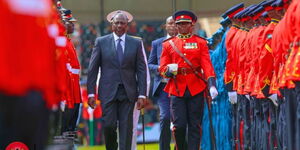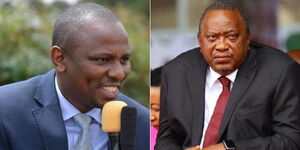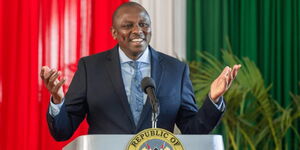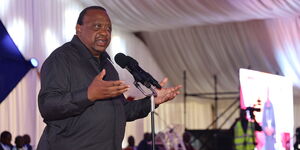David Letoo, lost his father at the age of ten after he was attacked and injured by an elephant while in the fields.
While revisiting the fateful grounds that claimed his father’s life Letoo describes a story of pain that could be the reality of many others who have encountered human-wildlife conflict.
“I am standing on a very important ground to me, my Dad was killed by an elephant around this place and when I thought about the elephants that killed my father I felt they should all be put down,” reminisced Letoo.
Interestingly he narrates experiencing a change of heart based on a nudge from his mother and a desire to understand the nature of the elephants and their triggers to help combat the conflict.
Letoo’s conservation journey began with him undertaking a course on wildlife and culminated in him being a conservation ambassador and a Project Officer at the World Wide Fund (WWF) for Nature-Kenya.
The African Elephant Conservation project is one of the many under the banner of WWF-Kenya which has taken a key interest in Kenya’s sustainability measures.
In a Gala Dinner hosted by the organisation on Thursday, March 21, at The Sankara Hotel in Westlands Nairobi in collaboration with the key stakeholders in Kenya’s Private Sector, WWF-Kenya sought to promote the involvement of the business community in pushing the conservation agenda.
The dinner, whose theme was “Safe for People, Safe for Nature” provided a platform for the organisation to present its mandate to Kenya’s Private Sector who not only benefit from natural resources but are also crucial partners in conservation.
Currently, WWF-Kenya prides itself in innovative methods to mitigate human-wildlife conflict with measures spanning to Predator-proof bomas. This initiative features Solar-powered light sensors that deter animals from encroaching on human settlements.
Additionally, the organisation through its partnership with telecommunications company Safaricom and conservancies in the country is developing revolutionary AI programmes which are meant to support its conservation efforts.
One notable partner, The Sankara Group of Hotels, is one of the businesses spearheading the sustainability agenda through various initiatives such as the Zero Waste Initiative and a Sustainable Menu Experience.
The Group C.E.O, Krishna Unni while reiterating the hotel’s commitment to sustainability, noted that Sankara encouraged its guests to donate a dollar which would be donated to conservation.
During the event, the Hotel delivered a top culinary experience with a five-course meal made out of fully Kenyan ingredients through its ”Sustainable Menu Experience” and a challenge to the guests to leave nothing on their plates.
Through Its Board Chair Isaac Awoundo, WWF-Kenya expressed its appreciation to the stakeholders through the first-of-its-kind event by the organisation.
“Impactful sustainable development that benefits our people, nature and the Kenyan Economy can not be achieved without the active involvement of key stakeholders including businesses,” Awoundo emphasised.












